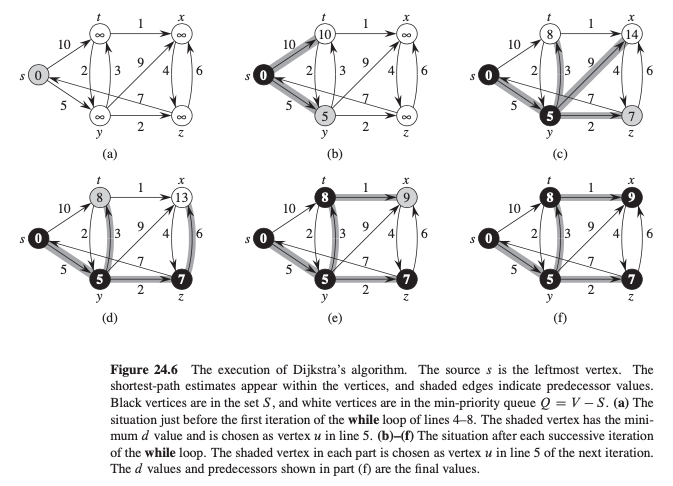Lecture 13: The Dijkstra’s Algorithm#
Overview#
Dijkstra’s algorithmsolves the single-source shortest-paths problem on a weighted, directed graph G D .V; E/ for the case in which all edge weights are nonnegative
Dijkstra Algorithm#
Dijkstra’s algorithm maintain a set
Sof vetices whose final shortest-path weights from the sourceshave already been determined.The algorithm repeatedly
selects the vertex
uinV-Swith the minimum shortest-path estimateadds
utoSrelaxes all edges leaving
u
The implememtation relies on min-priority queue
Qof vertices, keyed by theirdvalues.The algorithm always chooses the “closest” vertex in
V-Sto add to set S, and therefore uses a greedy strategy. -> not always yield optimal results but can do the work.
def Dijkstra(G, s):
1 initialize_single_source(G,s)
2 S = None # Initialize S
3 Q = G.V # Initialize min-priority queue Q
4 while Q not None: #
5 u = delete_min(Q) # Dequeue from min-priority Q
6 S += u # Insert to S
7 for v in G.Adj[u]: # Relax adjacent vertice
8 relax(u, v, w)
Example

